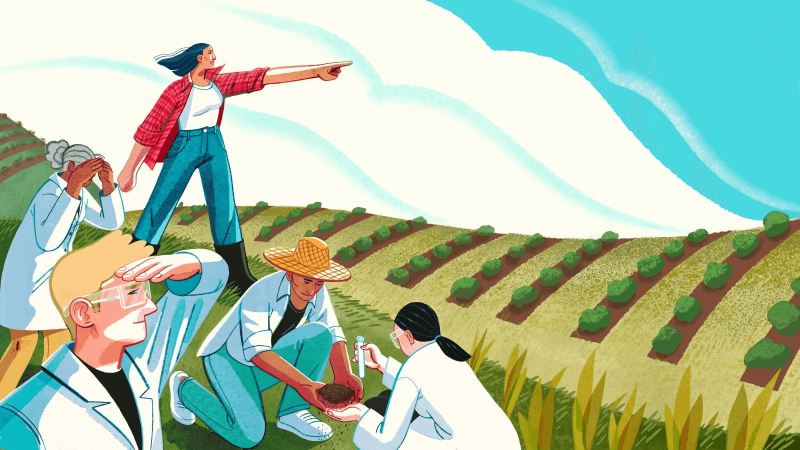World Economic Forum: How genetically engineered crops can fight climate change

The pursuit of net-zero can be divided into two parts. First, the reduction of greenhouse gas emissions to as close to zero as possible and second, the absorption of any remaining emissions from the atmosphere.
Agricultural land use is a key component in both sides of the net-zero equation. Decreasing the amount of land devoted to livestock will reduce methane emissions, while crops can be engineered to more efficiently capture carbon dioxide and turn it into oxygen or store it in the soil.
Engineered crops in the fight against climate change
Genetic engineering is already being used to help organisms adapt to rapidly changing climates. Researchers are developing strains of rice, maize and wheat capable of withstanding longer droughts and wetter monsoon seasons. Extreme temperatures are exposing crops to new fungi and pests, which is motivating scientists to genetically engineer disease-resistant cassava, potatoes and cacao.
Those same genetic engineering tools used for climate change adaptation are now being used for mitigation.
Researchers at the Innovative Genomics Institute have received funding from the Chan Zuckerberg Initiative to use CRISPR gene-editing technology to improve the ability of plants and soil microbes to capture and store carbon from the atmosphere in a variety of ways.

No comments:
Post a Comment